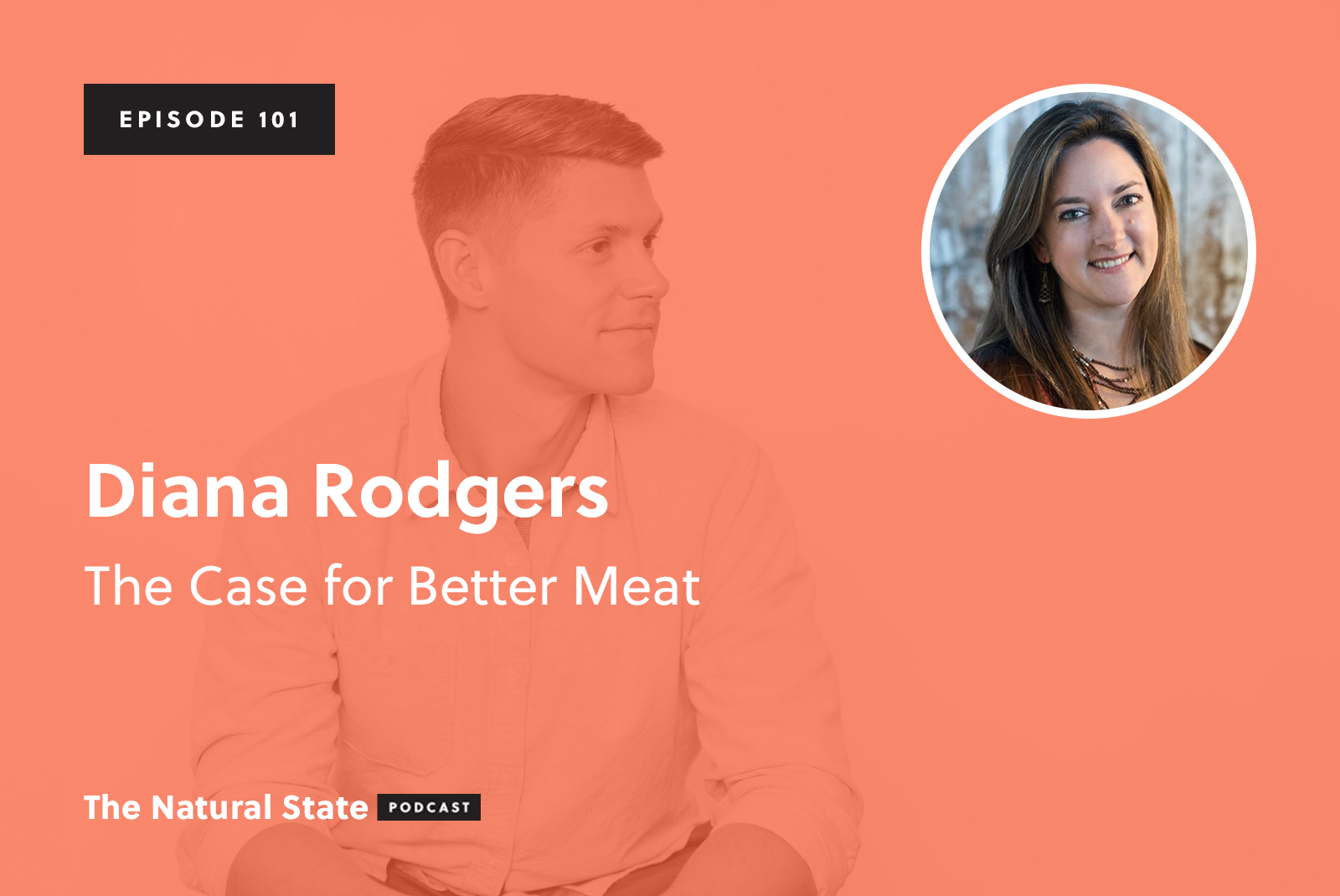You’ve probably seen plant-based documentaries being promoted on places like Netflix and wondered if a vegan or vegetarian diet is the key to better health and a better environment.
Today’s guest, Diana Rodgers, is here to prove that a plant-based diet may not be the answer to either of those problems and she shows what is instead.
In the podcast episode, you’ll hear Diana’s case for better nutrition, environmental impact, animal welfare, and sustainability through eating a diet that contains meat.
Diana discusses the case for why meat isn’t the reason behind global warming and skyrocketing cancer rates.
She also tackles issues such as what happens when we pull meat from our schools, if it’s possible to raise meat sustainably and ethically, and so much more.
You’ll also learn about the true water usage of raising meat and whether or not grass-fed versus conventional grown meat really shows much of a difference.
There is no way to grow food without death. Click To TweetDiana comes on the show today to discuss these topics and she gives listeners a sneak peek into her latest book, Sacred Cow, which she co-authored with best-selling author Robb Wolf, and her upcoming film that they did together with producer James Connolly.
In both the film and the book, Diana and Robb present the research behind whether or not eating meat is sustainable and how it stacks up to a plant-based diet.
And that’s exactly what you’ll hear more about when you tune in.
As for Diana’s background, she’s a Licensed Registered Dietician Nutritionist who lives and works on an organic farm in New England.
She’s also a podcast host and author of The Sustainable Dish Podcast and she’s a speaker at both universities and conferences around the world.
On top of that, Diana is a Consulting Dietician for well-known publications like Nom Nom Paleo, Whole 30, Robb Wolf, Savory Institute, and The Farm to Consumer Legal Defense Fund.
She’s also a board member of Animal Welfare Approved, Chris Kresser’s Adapt Health Coach Training Program, and Mark Sisson’s Primal Health Coach Program.
Diana’s work has also been featured in The Los Angeles Times, The Boston Globe, Outside Magazine, MindBodyGreen, and Mother Earth News.
When you check out this episode, you’ll hear about these topics and more:
- Regenerative agriculture
- Meat versus plant-based diets
- How Diana found herself in this space and what happened leading up to that point in her life
- Is there something fundamentally wrong with our meat system and can we fix it?
- Why we should be following an ancestral template with agriculture
- Why we need to discuss ethics with regards to nutrition and how food impacts our environment
- Should we really push less meat or no meat?
- What happens when you pull meat out of a schools
- How did we get to this point and what can be done to fix it?
- How our relationship to meat has changed over time
- What’s the biggest issue in our food system today?
- Why meat is unfairly blamed for our current health issues
- Grass-fed versus grain-fed meats
- Why our current protein intake is too low and the problems this can lead to
- The issues with our modern day food
- The argument over water usage in raising meats
- Scalability of regenerative agriculture
- What is the optimal diet for humans?
- Why we need to stop the culture war on farmers
- Why Diana prefers seafood even though she eats beef and lamb
- Diana also shares her take on the carnivore diet as a nutritionist
- You’ll also learn Diana’s simple formula for piecing together a healthy and satisfying meal
- What you should be optimizing no matter what diet you’re on
If you enjoyed this episode, subscribe to the Natural State Podcast on iTunes to get automatic updates. Use Android? Click here to subscribe on Stitcher and here to subscribe on Google Play Music.
Mentioned in This Episode
- Diana Rodgers’ website
- Diana Rodgers’ Twitter, Facebook, and Instagram
- The book Diana Rodgers co-authored: Sacred Cow
- Diana’s podcast episode Meat as a Scapegoat with Frédéric Leroy
- The film Look & See: Wendell Berry’s Kentucky
- The book, The Vegetarian Myth
More Resources
- The Natural State Podcast Episode 082: Dr. Paul Saladino – Sustainability of Meat-Based vs. Plant-Based Diets
- The Carnivore Diet: Pros, Cons, And Possible Risks
- Plant-Based Keto: Is It Sustainable?
- The Keto Protein Myth: How Much Protein to Eat on a Keto Diet
- The Natural State Podcast Episode 076: Jesse Griffiths – Hunting for Better Food Quality
- The Natural State Podcast Episode 095: Will Harris – Regenerative Agriculture and Why More Farms Should Switch to this Eco-Friendly Model
- The Natural State Podcast Episode 098: Mansal Denton – Ethical Hunting and Tapping into Nature and Your Emotions
- The Natural State Podcast Episode 078: Robby Sansom – The Benefits of Regenerative Agriculture
